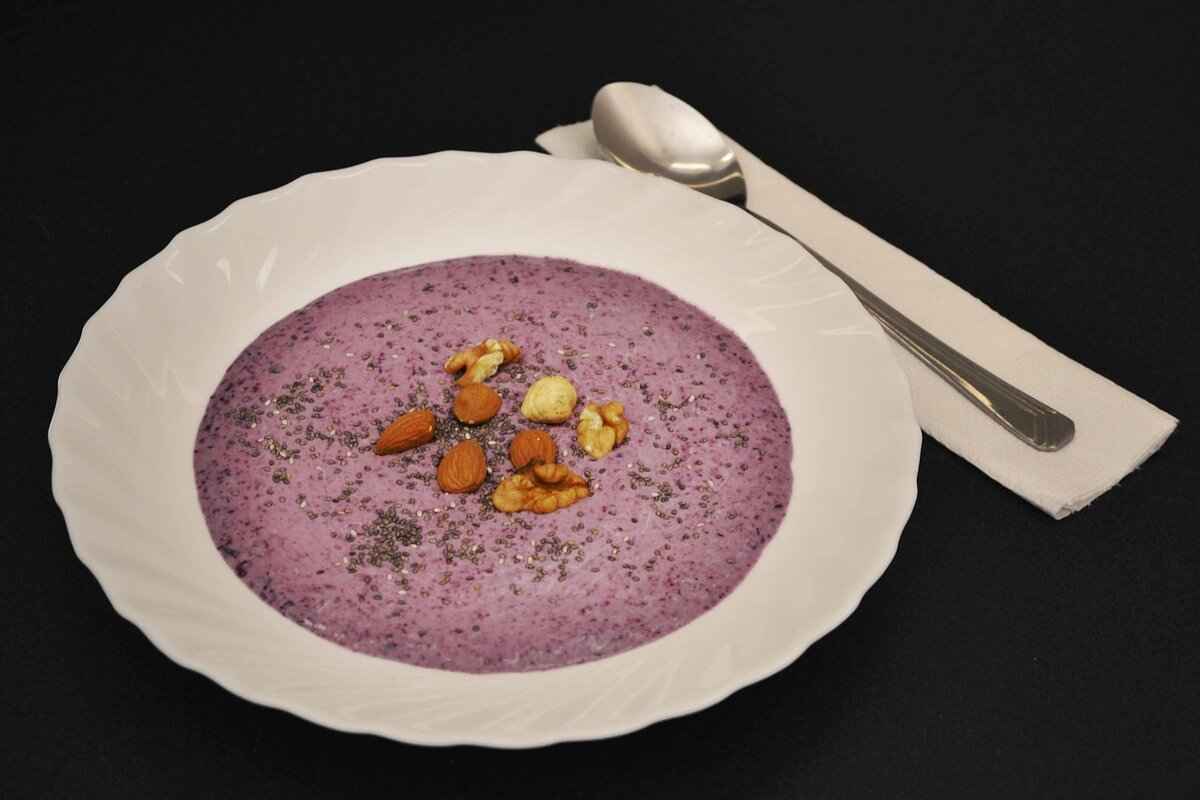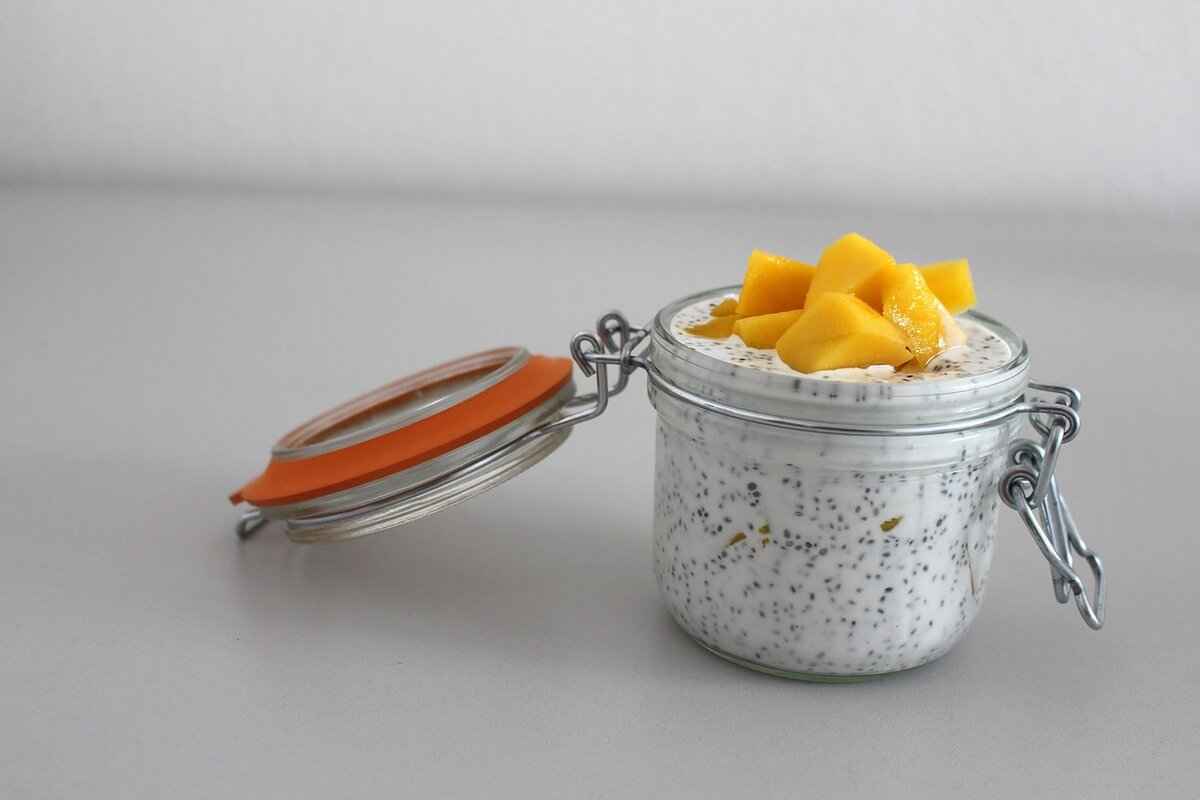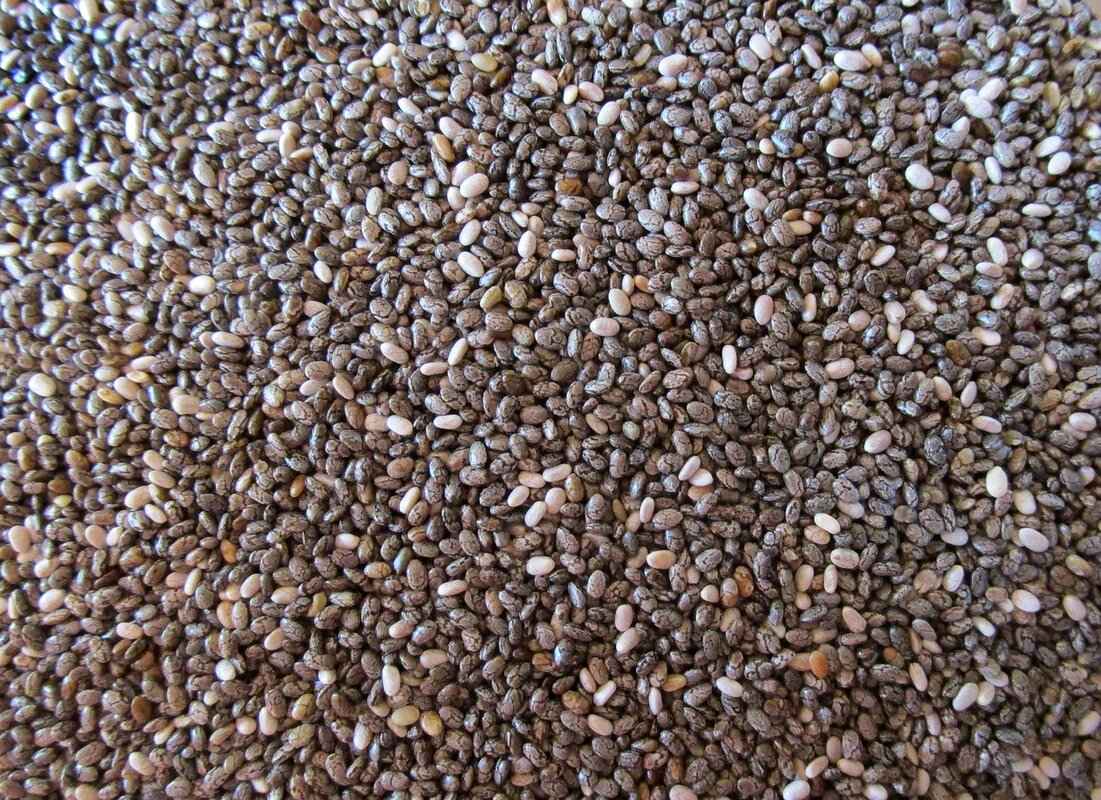Chia seeds have emerged as a popular vegan alternative in the baking world, especially as an egg substitute. This article delves into the numerous benefits, practical uses, and preparation methods of chia seeds, making it an essential guide for anyone exploring plant-based baking options.
Chia seeds are small, black or white seeds derived from the Salvia hispanica plant, native to Central America. These tiny seeds are renowned for their impressive nutritional profile, which includes high levels of omega-3 fatty acids, fiber, and protein. Their ability to absorb water and form a gel-like consistency makes them an excellent choice for binding ingredients in baking.
Using chia seeds as an egg substitute is remarkably straightforward. When mixed with water, chia seeds create a gelatinous mixture that mimics the binding properties of eggs. This makes them ideal for various baked goods, from cakes to cookies.
To prepare a chia seed egg substitute, follow these simple steps:
- Combine 1 tablespoon of chia seeds with 3 tablespoons of water.
- Stir the mixture and let it sit for about 15 minutes until it thickens into a gel.
This gel can replace one egg in most recipes, making it a versatile tool in vegan baking.
The unique property of chia seeds to absorb water and swell into a gel is what makes them an effective egg substitute. This gelatinous texture helps bind ingredients together, similar to how eggs function in traditional recipes.
Chia seed eggs can be successfully used in a variety of recipes, including:
- Pancakes
- Muffins
- Cookies
These recipes benefit from the added moisture and texture that chia seeds provide, enhancing both flavor and nutritional value.
Incorporating chia seeds into your baking not only offers a vegan alternative but also adds essential nutrients. These seeds are rich in fiber, antioxidants, and healthy fats, contributing significantly to a balanced diet.
Chia seeds are packed with nutrients, including:
- Protein
- Calcium
- Magnesium
- Phosphorus
These nutrients not only enhance the health benefits of your baked goods but also support overall well-being.
Choosing plant-based ingredients like chia seeds can significantly reduce the carbon footprint associated with animal agriculture. This shift towards vegan baking practices contributes to a more sustainable and eco-friendly approach to cooking.
While chia seeds offer numerous benefits, they may not be suitable for every recipe. Some baked goods may require adjustments in moisture levels or texture when substituting eggs with chia seeds.
Chia seeds have a mild flavor, but their unique texture can slightly alter the consistency of the final product. Experimenting with quantities and combinations can help achieve the desired outcome.
If chia seeds are not available, other vegan egg substitutes include:
- Flaxseed meal
- Applesauce
- Commercial egg replacers
Each alternative has unique properties that may suit different recipes, allowing for flexibility in vegan baking.

What Are Chia Seeds?
Chia seeds, derived from the Salvia hispanica plant, are tiny yet powerful seeds that have gained immense popularity in the health food community. These seeds are not only versatile but also packed with essential nutrients that contribute to overall well-being. Their rich composition includes high levels of omega-3 fatty acids, fiber, and protein, making them a staple for those seeking nutritious alternatives in their diets.
Chia seeds are often hailed as a superfood due to their impressive nutritional profile. A mere ounce (about 28 grams) of chia seeds contains:
- 11 grams of fiber, which aids in digestion and helps maintain a healthy weight.
- 4 grams of protein, providing a plant-based source of this essential nutrient.
- 5 grams of omega-3 fatty acids, crucial for heart health and cognitive function.
- A range of vitamins and minerals, including calcium, magnesium, and phosphorus.
This combination of nutrients not only supports physical health but also enhances energy levels and promotes a feeling of fullness.
Incorporating chia seeds into your daily meals can lead to numerous health benefits. Their high fiber content helps regulate blood sugar levels and improves gut health. Additionally, the antioxidants found in chia seeds combat oxidative stress, which is linked to chronic diseases.
Chia seeds are an excellent choice for those following a vegan lifestyle, particularly when it comes to baking. When mixed with water, they form a gel-like substance that acts as a binding agent, similar to eggs. This property makes them perfect for a variety of baked goods, such as:
- Pancakes
- Muffins
- Cookies
The addition of chia seeds not only enhances the nutritional value but also improves the moisture and texture of the final product.
Preparing chia seeds as an egg substitute is straightforward. To create a chia egg, simply mix:
1 tablespoon of chia seeds3 tablespoons of water
Allow the mixture to sit for about 15 minutes until it thickens into a gel. This simple preparation opens up a world of possibilities for vegan baking.
While chia seeds offer many advantages, there are a few considerations to keep in mind. The texture they impart can alter the consistency of certain recipes. It’s essential to experiment with the quantities to achieve the desired results. Additionally, some individuals may prefer the flavor profile of other egg substitutes, such as flaxseed meal or applesauce.
If chia seeds are not available, there are several other vegan egg substitutes that can be utilized. These include:
- Flaxseed meal: Similar to chia, flaxseed can also create a gel-like consistency when mixed with water.
- Applesauce: A popular choice for sweet baked goods, applesauce adds moisture and sweetness.
- Commercial egg replacers: These products are designed specifically for vegan baking and can be a convenient option.
Each alternative has its unique properties, making them suitable for different recipes and preferences.
In summary, chia seeds are a versatile and nutrient-dense option that can significantly enhance your baking, especially for those following a vegan diet. Their health benefits, combined with their functional properties, make them a valuable addition to any kitchen.

How to Use Chia Seeds as an Egg Substitute?
Using chia seeds as an egg substitute is an excellent choice for those looking to explore vegan baking options. This method is not only simple but also effective in achieving the desired texture and moisture in various baked goods. Chia seeds, when combined with water, form a gel-like consistency that closely resembles the binding properties of eggs, making them a versatile ingredient in many recipes.
To utilize chia seeds as an egg substitute, the process is straightforward. Start by taking one tablespoon of chia seeds and mixing it with three tablespoons of water. Allow the mixture to sit for approximately 15 minutes, during which time it will thicken into a gel-like substance. This gel can then be used in place of one egg in your baking recipes.
Chia seeds offer several advantages over traditional egg substitutes. They not only provide a binding agent but also add a wealth of nutrients to your baked goods. Rich in omega-3 fatty acids, fiber, and protein, chia seeds contribute to a healthier diet. Additionally, their neutral flavor makes them suitable for a wide range of recipes, from pancakes to breads.
- Health Benefits: Chia seeds are packed with essential nutrients, including calcium and magnesium, which can enhance the nutritional profile of your baked goods.
- Environmental Impact: Using plant-based alternatives like chia seeds can help reduce your carbon footprint, making your baking practices more sustainable.
- Versatility: Chia seed gel can be used in a variety of recipes, from cookies to muffins, allowing for endless baking possibilities.
Many bakers have successfully integrated chia seed eggs into their favorite recipes. Here are a few popular options:
- Vegan Brownies: The chia seed gel adds moisture and richness to brownies without compromising flavor.
- Banana Bread: Chia seeds enhance the texture and nutritional value of banana bread, making it a delicious and healthy treat.
- Energy Bars: Incorporating chia seeds into homemade energy bars provides a boost of protein and fiber, perfect for on-the-go snacking.
While chia seeds are a fantastic alternative, there are some considerations to keep in mind. The texture of chia seeds can alter the final product, especially in delicate recipes. It’s essential to experiment with the quantities to achieve the desired consistency. Additionally, some recipes may require adjustments in moisture levels, as chia seeds absorb liquid.
If you find yourself without chia seeds, several other vegan egg substitutes can be used:
- Flaxseed Meal: Similar to chia seeds, flaxseed meal can be mixed with water to create a gel-like substitute.
- Applesauce: This fruit puree can add moisture and sweetness to baked goods, making it a great alternative in certain recipes.
- Commercial Egg Replacers: These products are specifically designed to mimic the properties of eggs in baking and can be a convenient option.
In conclusion, using chia seeds as an egg substitute is a practical and nutritious choice for vegan baking. Not only do they provide the necessary binding properties, but they also enhance the overall health benefits of your baked goods. With a little experimentation, you can create delicious treats that everyone will enjoy.
Preparing Chia Seed Egg Substitute
is a straightforward process that can transform your baking experience, especially for those following a vegan diet. Chia seeds are not only nutritious but also serve as an excellent binding agent in recipes, mimicking the properties of eggs. This section will guide you through the preparation steps and provide insights into why chia seeds are an effective alternative.
To create a chia seed egg substitute, start by measuring out one tablespoon of chia seeds. Place the seeds in a small bowl or container. Next, add three tablespoons of water to the chia seeds. It is essential to use the correct ratio to achieve the desired gel-like consistency. Stir the mixture well to ensure that the seeds are evenly distributed in the water.
After mixing, let the chia seed and water mixture sit for approximately 15 minutes. During this time, the chia seeds will absorb the water and swell, forming a thick, gelatinous texture. This gel mimics the binding quality of eggs, making it ideal for various baked goods. It is crucial to allow the mixture to rest, as this step is what enables the chia seeds to activate and create the necessary consistency.
Once the mixture has thickened, you can use it as a substitute for one egg in your recipes. This chia egg is particularly effective in recipes such as pancakes, muffins, and cookies, where moisture and binding are essential. The chia seed egg not only helps hold the ingredients together but also adds a nutritional boost, as chia seeds are rich in omega-3 fatty acids, fiber, and protein.
For those wondering why chia seeds work so well as an egg substitute, the answer lies in their unique properties. When chia seeds are mixed with liquid, they form a gel due to their high soluble fiber content. This gel acts similarly to the proteins found in eggs, providing structure and moisture to baked goods. Additionally, chia seeds are flavor-neutral, meaning they won’t alter the taste of your recipes.
It is important to note that while chia seed eggs are versatile, they may not work perfectly in every recipe. Some baked goods, particularly those that rely heavily on the leavening properties of eggs, may require adjustments in moisture or texture. Therefore, it is advisable to experiment with your favorite recipes to find the right balance.
In conclusion, preparing a chia seed egg substitute is a simple yet effective way to enhance your baking while adhering to a vegan lifestyle. With just a few ingredients and a little patience, you can create a nutritious and versatile egg alternative that can be used in a variety of recipes. Whether you are a seasoned baker or just starting, incorporating chia seeds into your baking repertoire can lead to delicious and healthy outcomes.
Why Does It Work?
The gelatinous texture formed by chia seeds when they are hydrated is a remarkable feature that makes them an excellent binding agent in baking. When chia seeds are mixed with water, they absorb the liquid and swell, creating a thick gel that can effectively mimic the binding properties of eggs. This property is particularly beneficial in vegan baking, where traditional eggs are not an option.
Chia seeds contain soluble fiber, which contributes to their ability to form this gel. The soluble fiber acts like a sponge, soaking up moisture and expanding, which helps to hold the ingredients together in recipes. This is similar to how eggs provide structure and stability in baked goods. By using chia seeds as an egg substitute, you can achieve a similar texture and moisture level in your final product.
Another reason why chia seeds work so well in baking is their nutritional profile. They are packed with essential nutrients, including omega-3 fatty acids, protein, and antioxidants. This means that not only do they serve a functional purpose, but they also enhance the overall nutritional value of your baked goods. For those following a vegan diet or looking to reduce their consumption of animal products, chia seeds offer a wholesome alternative.
When substituting chia seeds for eggs, the typical ratio is one tablespoon of chia seeds mixed with three tablespoons of water to replace one egg. This mixture should be allowed to sit for about 15 minutes until it thickens into a gel-like consistency. The resulting chia egg can then be incorporated into your favorite recipes, such as pancakes, muffins, and cookies.
It’s important to note that while chia seeds are versatile, they may not work perfectly in every recipe. The texture of the final product can vary depending on the specific ingredients used and the baking method. For instance, recipes that require a light and fluffy texture may need additional adjustments to ensure the desired outcome. However, with some experimentation, many bakers find success in using chia seeds as an effective egg replacement.
Additionally, chia seeds offer a unique flavor that is generally mild and unobtrusive, allowing them to blend well with various ingredients. This makes them suitable for both sweet and savory baked goods. Their ability to retain moisture can also lead to a more tender final product, which is a desirable characteristic in many baked items.
In summary, the use of chia seeds as an egg substitute is not only a practical solution for vegan baking but also a nutritious one. Their gelatinous texture provides the necessary binding properties that eggs typically offer, making them an ideal choice for those seeking plant-based alternatives. With their numerous health benefits and versatility, chia seeds have earned their place in the modern baker’s pantry.
Best Recipes for Chia Seed Egg Substitute
Chia seed egg substitutes are a fantastic option for anyone looking to bake without using traditional eggs. These tiny seeds not only provide a binding agent but also enhance the overall flavor and nutritional profile of your baked goods. Below, we delve into some of the best recipes where chia seed egg substitutes can shine.
- Pancakes: Chia seeds can be used to create fluffy, delicious pancakes. Simply mix one tablespoon of chia seeds with three tablespoons of water to replace one egg. This will add moisture and a slight nutty flavor to your pancakes.
- Muffins: Incorporating chia seeds into muffin recipes is an excellent way to boost their nutritional value. The gel-like consistency of the chia seed mixture helps keep the muffins moist and tender.
- Cookies: For cookie lovers, chia seeds can be a game-changer. They help to create a chewy texture while providing essential nutrients. Use the same chia seed egg ratio to replace eggs in your favorite cookie recipe.
- Brownies: Vegan brownies can be rich and fudgy with the addition of chia seeds. The binding properties of the chia gel ensure that your brownies hold together while remaining soft and delicious.
- Banana Bread: Chia seeds work wonderfully in banana bread, adding moisture and texture. The flavor of the bananas complements the chia seeds, making for a delightful treat.
- Energy Bars: Homemade energy bars benefit from the addition of chia seeds. They not only bind the ingredients together but also provide a good source of protein and fiber, making them a perfect snack.
Each of these recipes showcases the versatility of chia seeds as an egg substitute. The process of preparing the chia seed egg is simple: mix one tablespoon of chia seeds with three tablespoons of water, let it sit for about 15 minutes until it thickens, creating a gel-like consistency. This mixture can then be seamlessly integrated into your baking.
Moreover, using chia seeds in your recipes not only caters to those following a vegan diet but also promotes a healthier lifestyle by incorporating nutrient-dense ingredients. They are rich in omega-3 fatty acids, fiber, and antioxidants, making them a beneficial addition to any baked item.
In conclusion, chia seed egg substitutes are a practical and nutritious alternative in baking. With their ability to enhance the moisture and texture of various recipes, they are a must-try for anyone looking to experiment with vegan baking. Whether you’re whipping up pancakes, cookies, or brownies, chia seeds can elevate your culinary creations while adhering to dietary preferences.
Common Baking Recipes Using Chia Seed Eggs
As the demand for vegan baking continues to rise, many bakers have successfully incorporated chia seed eggs into their recipes. This versatile ingredient not only serves as an excellent egg substitute but also enhances the nutritional profile of various baked goods. Here, we explore some popular recipes that benefit from the inclusion of chia seed eggs, offering delicious alternatives for those seeking plant-based options.
- Vegan Brownies: Chia seed eggs work wonders in vegan brownie recipes. When combined with cocoa powder and a touch of maple syrup, they create a rich, fudgy texture that rivals traditional brownies. The chia seeds add moisture and a slight crunch, making each bite satisfying.
- Banana Bread: This classic recipe is perfect for using chia seed eggs. The binding properties of the gel-like mixture help hold together the mashed bananas, flour, and spices, resulting in a moist and flavorful loaf. Plus, the added fiber from chia seeds makes it a healthier choice.
- Energy Bars: Homemade energy bars are a fantastic way to incorporate chia seed eggs. By mixing oats, nuts, and dried fruits with the chia mixture, you can create a wholesome snack that provides sustained energy. These bars are perfect for on-the-go breakfasts or post-workout fuel.
- Pancakes: Fluffy vegan pancakes can easily be made using chia seed eggs. The addition of chia not only helps the batter hold together but also contributes to a delightful texture. Top them with fresh fruits and maple syrup for a delicious breakfast treat.
- Muffins: Whether you prefer blueberry, chocolate chip, or bran muffins, chia seed eggs can enhance the recipe. They provide moisture and structure, ensuring that the muffins rise beautifully and maintain a soft crumb.
In addition to these recipes, chia seed eggs can be used in cookies, quick breads, and even savory dishes like veggie burgers. The versatility of chia seeds makes them a staple in many vegan kitchens.
When using chia seeds as an egg substitute, it’s essential to remember that the typical ratio is one tablespoon of chia seeds mixed with three tablespoons of water, allowed to sit for about 15 minutes to form a gel. This simple preparation method opens the door to numerous baking possibilities.
Moreover, the incorporation of chia seeds into your baking not only offers a delicious alternative to traditional eggs but also enhances the nutritional value of your meals. Rich in omega-3 fatty acids, fiber, and protein, chia seeds can contribute to a balanced diet while satisfying your sweet tooth.
In conclusion, the use of chia seed eggs in baking has become a popular trend among health-conscious individuals and those adhering to vegan diets. By experimenting with these recipes, bakers can enjoy the benefits of plant-based ingredients while creating tasty treats that everyone will love.

Benefits of Using Chia Seeds in Baking
Chia seeds have gained popularity in recent years, especially among those seeking vegan alternatives in their baking. These tiny seeds are not only versatile but also pack a punch when it comes to nutrition. Incorporating chia seeds into your baking provides a range of benefits that go beyond just being a substitute for eggs.
Chia seeds are a powerhouse of nutrients. They are rich in omega-3 fatty acids, which are essential for heart health. Additionally, they contain high levels of fiber, which aids in digestion and helps maintain a healthy weight. These seeds are also a great source of antioxidants, protecting the body from oxidative stress, and provide essential minerals like calcium, magnesium, and phosphorus.
When added to baked goods, chia seeds can improve both texture and moisture. The gel-like consistency they form when mixed with water helps bind ingredients together, making them particularly effective in recipes like pancakes, muffins, and cookies. This binding property mimics the functionality of eggs, ensuring that your vegan treats hold together well.
Yes, there are numerous health benefits associated with using chia seeds in baking. Their high fiber content not only aids digestion but also helps regulate blood sugar levels, making them an excellent choice for those with diabetes. Furthermore, the antioxidants found in chia seeds can help reduce inflammation and lower the risk of chronic diseases.
Incorporating chia seeds into your baking isn’t just beneficial for your health; it also has a positive impact on the environment. By opting for plant-based ingredients like chia seeds, you contribute to a more sustainable food system. The production of chia seeds generally has a lower carbon footprint compared to animal-based products, making it an eco-friendly choice for conscientious bakers.
While chia seeds are an excellent substitute for eggs in many recipes, they may not work in every scenario. Some baked goods may require careful adjustments to moisture levels, as the gel formed by chia seeds can alter the texture of the final product. It’s essential to experiment with different recipes to find the right balance.
- Experiment with Ratios: Start with one tablespoon of chia seeds mixed with three tablespoons of water to replace one egg, adjusting as necessary.
- Mix Well: Ensure that the chia seeds are evenly distributed in your batter to avoid clumping.
- Consider Flavor: While chia seeds have a mild flavor, they can slightly alter the taste of your baked goods. Pair them with strong flavors to mask any changes.
If you find yourself without chia seeds, there are several other vegan egg substitutes you can consider. Flaxseed meal is a popular option, as it also creates a gel-like consistency when mixed with water. Other alternatives include applesauce, mashed bananas, and commercial egg replacers, each offering unique properties that can enhance your baked goods.
In summary, incorporating chia seeds into your baking not only provides a vegan alternative but also enriches your recipes with essential nutrients, making them a smart choice for health-conscious bakers. With their numerous benefits, chia seeds can help you create delicious and nutritious treats that everyone will enjoy.
Nutritional Advantages
Chia seeds have gained popularity in recent years due to their and versatility in various recipes. These tiny seeds, often overlooked, are a powerhouse of essential nutrients that can significantly enhance your diet.
Chia seeds are rich in a variety of nutrients, making them a valuable addition to any meal. Here are some of the key components:
- Protein: Chia seeds contain about 4 grams of protein per ounce, which is crucial for muscle repair and growth.
- Calcium: With approximately 18% of the recommended daily intake in just one ounce, chia seeds can help maintain strong bones and teeth.
- Magnesium: This mineral plays a vital role in over 300 biochemical reactions in the body, including energy production and muscle function.
- Phosphorus: Essential for the formation of bones and teeth, phosphorus also aids in the body’s energy metabolism.
- Omega-3 Fatty Acids: Chia seeds are an excellent plant-based source of omega-3s, which are important for heart health and reducing inflammation.
The nutrient profile of chia seeds offers numerous health benefits:
- Heart Health: The high omega-3 content can help lower cholesterol levels and reduce the risk of heart disease.
- Digestive Health: Chia seeds are high in fiber, promoting regular bowel movements and aiding in digestion.
- Weight Management: The fiber and protein content can help you feel full longer, which may assist in weight control.
- Bone Health: The combination of calcium, magnesium, and phosphorus contributes to maintaining strong bones.
Incorporating chia seeds into your meals is simple and versatile. Here are some practical ways to add them to your diet:
- Breakfast: Add chia seeds to smoothies, oatmeal, or yogurt for a nutritious boost.
- Baking: Use chia seeds in muffins, bread, or pancakes as a healthy egg substitute.
- Snacks: Mix chia seeds into energy bars or granola for added crunch and nutrition.
- Salads: Sprinkle chia seeds over salads for a crunchy texture and nutrient enhancement.
While chia seeds are generally safe for most people, there are a few considerations to keep in mind:
- Hydration: Chia seeds can absorb a significant amount of water, so it’s essential to stay hydrated when consuming them.
- Allergies: Although rare, some individuals may be allergic to chia seeds, so it’s best to start with small amounts.
In summary, chia seeds are not just a trendy health food; they are a nutrient-dense addition to any diet. Their impressive nutritional profile, combined with their versatility in cooking and baking, makes them a fantastic choice for anyone looking to improve their health and well-being.
Environmental Impact of Vegan Baking
In recent years, the movement towards vegan baking has gained significant traction, not just for its health benefits but also for its positive environmental impact. As we become more aware of the consequences of our dietary choices, the need for sustainable practices in baking has never been more critical. One of the key elements of this shift is the incorporation of plant-based ingredients, such as chia seeds, which play a vital role in reducing our carbon footprint.
Switching to plant-based ingredients like chia seeds is a powerful way to combat the environmental challenges posed by traditional animal agriculture. The production of animal products is known to be resource-intensive, requiring vast amounts of water, land, and energy. In contrast, plant-based ingredients require significantly fewer resources to produce, making them a more sustainable option.
- Lower Greenhouse Gas Emissions: Animal agriculture is a major contributor to greenhouse gas emissions, particularly methane. By choosing chia seeds, which are derived from a plant source, bakers can help reduce these emissions.
- Reduced Water Usage: The water footprint of animal farming is substantial. Chia seeds, on the other hand, require much less water to cultivate, thereby conserving this precious resource.
- Soil Health and Biodiversity: Plant-based farming practices can enhance soil health and promote biodiversity, which is essential for maintaining ecological balance.
In addition to their environmental advantages, chia seeds offer a plethora of nutritional benefits. They are rich in omega-3 fatty acids, fiber, and protein, making them an excellent addition to any baked good. By substituting eggs with chia seeds, bakers not only contribute to a more sustainable practice but also enhance the nutritional profile of their recipes.
When using chia seeds as an egg substitute, it is essential to understand their properties. To create a chia egg, simply mix one tablespoon of chia seeds with three tablespoons of water and let it sit for about 15 minutes. This mixture will form a gel-like consistency that binds ingredients together, similar to eggs.
While there are numerous benefits to using chia seeds and other plant-based ingredients, some bakers may encounter challenges. The texture of baked goods may change slightly, and adjustments in moisture levels may be necessary. Experimentation is key to achieving the desired results.
For those who may not have chia seeds on hand, there are several other vegan egg substitutes available, including flaxseed meal, applesauce, and commercial egg replacers. Each of these options has unique properties that can work well in various recipes, providing flexibility for bakers.
In conclusion, embracing vegan baking through the use of ingredients like chia seeds not only aligns with a healthier lifestyle but also supports a more sustainable future. By making conscious choices in our baking practices, we can significantly reduce our environmental impact and contribute to a healthier planet.

Are There Any Drawbacks to Using Chia Seeds?
Chia seeds have gained popularity as a versatile ingredient in vegan baking, particularly as an egg substitute. However, while they offer numerous benefits, it’s essential to understand that they may not be suitable for every recipe. This section delves deeper into the potential drawbacks of using chia seeds as an egg replacement, helping bakers make informed decisions.
Chia seeds are a fantastic source of nutrients and can enhance the overall quality of baked goods. Nevertheless, there are certain considerations to keep in mind when incorporating them into your recipes. Here are some key points to consider:
- Moisture Level Adjustments: Chia seeds absorb a significant amount of liquid, which can alter the moisture content of your baked goods. When substituting chia seeds for eggs, you may need to adjust the liquid ingredients in your recipe to prevent a dry outcome.
- Texture Variations: The gel-like consistency of chia seed egg substitutes can change the texture of your baked items. While it works well in some recipes, such as pancakes and muffins, it might not provide the same fluffy texture as eggs in others, like soufflés or delicate cakes.
- Flavor Considerations: Although chia seeds have a mild flavor, their presence can sometimes be detected in certain recipes, especially if used in larger quantities. This could affect the overall taste of the final product.
To successfully incorporate chia seeds into your baking without compromising quality, consider the following adjustments:
- Experiment with Ratios: The common ratio for replacing one egg with chia seeds is one tablespoon of chia seeds mixed with three tablespoons of water. However, depending on the recipe, you might need to tweak this ratio to achieve the desired texture.
- Monitor Baking Time: Baked goods using chia seeds may require different baking times. Keep a close eye on your treats, as they can cook faster or slower than expected.
- Combine with Other Ingredients: In some cases, combining chia seeds with other egg substitutes, like applesauce or mashed bananas, can yield better results, enhancing both moisture and texture.
If you find that chia seeds do not work well in a particular recipe, there are several other vegan egg substitutes you can explore:
- Flaxseed Meal: Similar to chia seeds, flaxseeds create a gel-like substance when mixed with water. They can provide a comparable binding effect in many recipes.
- Applesauce: This fruit puree adds moisture and sweetness, making it an excellent choice for cakes and muffins.
- Commercial Egg Replacers: These products are specifically designed to mimic the properties of eggs and can be a reliable option for various baking needs.
In conclusion, while chia seeds are a nutritious and versatile egg substitute, they may not be the perfect fit for every recipe. Understanding their properties and how they interact with other ingredients will help you make the most of this superfood in your baking endeavors.
Texture and Flavor Considerations
When it comes to baking, the texture and flavor of ingredients play a crucial role in the final product. Chia seeds, while known for their numerous health benefits, can impart unique characteristics to your baked goods. Their flavor is generally mild, allowing them to blend well into various recipes without overpowering other ingredients. However, the gel-like consistency they create when mixed with water can alter the texture of your baked items.
It’s important to note that the gel formation occurs when chia seeds absorb liquid. This process can lead to a denser product, which may be desirable in some recipes, such as vegan brownies or banana bread, where moisture is key. Conversely, in lighter recipes like pancakes or muffins, the use of chia seeds might require careful adjustments to achieve the perfect fluffiness. Therefore, experimenting with the quantity of chia seeds used is essential to achieve the desired outcome.
For those who are new to using chia seeds, a good starting point is to use one tablespoon of chia seeds combined with three tablespoons of water to replace one egg. After allowing this mixture to sit for about 15 minutes, it will thicken into a gel. This gel can then be added to your batter or dough, providing binding properties similar to those of eggs. However, keep in mind that the amount of chia seeds can be adjusted based on the recipe and personal preference. For instance, using more chia seeds can enhance the density and moisture, while using less may yield a lighter texture.
Another key consideration is the visual aspect of chia seeds in your baked goods. Once hydrated, chia seeds become translucent and may appear as small specks throughout the final product. While some bakers appreciate this unique visual element, others may prefer a smoother texture without the visible seeds. If aesthetics are a concern, you might consider blending the chia seeds into a finer meal before mixing them with water. This method can help minimize their appearance while still providing the necessary binding properties.
In terms of flavor, chia seeds are relatively neutral, which means they won’t drastically change the taste of your baked goods. However, they can slightly enhance the nutritional profile of your recipes, adding essential fatty acids, fiber, and protein without overpowering the original flavors. This makes them an excellent choice for health-conscious bakers looking to incorporate more nutrients into their treats.
Ultimately, the key to successfully using chia seeds as an egg substitute lies in experimentation. Different recipes may yield varying results, and it may take a few tries to find the right balance that suits your taste and texture preferences. Keep in mind that baking is both a science and an art, and the more you practice, the more intuitive it will become. Don’t shy away from adjusting the quantities or trying new techniques, as this will enhance your baking skills and help you discover the optimal use of chia seeds in your favorite recipes.
Alternatives to Chia Seeds as Egg Substitutes
When it comes to vegan baking, finding suitable egg substitutes is crucial for achieving the right texture and flavor in your recipes. While chia seeds are a popular choice, there are several other effective alternatives that can be used in their place. Each substitute brings its own unique properties to the table, making them suitable for various types of baked goods.
Flaxseed meal is one of the most common alternatives to chia seeds. To create a flaxseed egg, simply mix one tablespoon of ground flaxseed with three tablespoons of water. Allow the mixture to sit for about 10-15 minutes until it thickens. This gel-like consistency helps bind ingredients similarly to eggs. Flaxseed meal is rich in omega-3 fatty acids and provides a nutty flavor, making it especially great for muffins, pancakes, and cookies.
Another excellent vegan egg substitute is applesauce. This option is particularly useful in sweet baked goods like cakes and brownies. To replace one egg, use 1/4 cup of unsweetened applesauce. Not only does it add moisture, but it also contributes natural sweetness, reducing the need for added sugars. Keep in mind that using applesauce may slightly alter the flavor and texture of your baked goods, making them softer and denser.
For those who prefer a hassle-free option, commercial egg replacers are available on the market. These products are specifically designed to mimic the binding and leavening properties of eggs in baking. Typically made from starches and other plant-based ingredients, they can be used according to package instructions. This option is ideal for anyone looking for a consistent result without the need for experimentation.
Silken tofu is another fantastic alternative, especially in rich and dense recipes like brownies or cakes. To replace one egg, blend 1/4 cup of silken tofu until smooth. This adds creaminess and protein, enhancing the nutritional profile of your baked goods. However, it is essential to note that silken tofu may not work well in lighter recipes, such as soufflés or meringues.
Mashed bananas can also serve as a vegan egg substitute, particularly in sweet recipes. Use 1/4 cup of mashed banana to replace one egg. This option not only binds ingredients but also adds a subtle banana flavor, which can complement many recipes. However, be cautious of the additional sweetness and moisture it introduces, which may require adjustments in other ingredients.
For a creamy texture, plant-based yogurt can be a great substitute. Use 1/4 cup of yogurt to replace one egg. This works particularly well in cakes and muffins, providing moisture and a tender crumb. Choose unsweetened varieties to avoid altering the overall sweetness of your recipe.
When selecting an egg substitute, consider the specific needs of your recipe. Some substitutes may work better in certain baked goods than others. For example, flaxseed meal and chia seeds are excellent for recipes requiring binding, while applesauce and bananas add moisture and sweetness. Experimenting with different substitutes can lead to delightful discoveries in your vegan baking journey.
Frequently Asked Questions
- What is a chia seed egg substitute?
A chia seed egg substitute is a vegan alternative to eggs made by mixing chia seeds with water. This mixture creates a gel-like consistency that helps bind ingredients in baking, similar to how eggs work in traditional recipes.
- How do I prepare a chia seed egg?
To prepare a chia seed egg, simply combine one tablespoon of chia seeds with three tablespoons of water. Let it sit for about 15 minutes until it thickens into a gel. It’s that easy!
- Can I use chia seeds in any baking recipe?
While chia seeds work well in many recipes, they may not be suitable for every baked good. Some recipes might need adjustments in moisture or texture, so it’s best to experiment a bit to achieve the desired results.
- What are the nutritional benefits of chia seeds?
Chia seeds are packed with essential nutrients, including omega-3 fatty acids, fiber, protein, calcium, and antioxidants. Incorporating them into your baking not only enhances flavor but also boosts the nutritional profile of your treats!
- Are there alternatives to chia seeds for egg substitution?
Absolutely! If you don’t have chia seeds on hand, you can use flaxseed meal, applesauce, or commercial egg replacers. Each of these alternatives has its unique properties, so choose based on the recipe you’re making.














